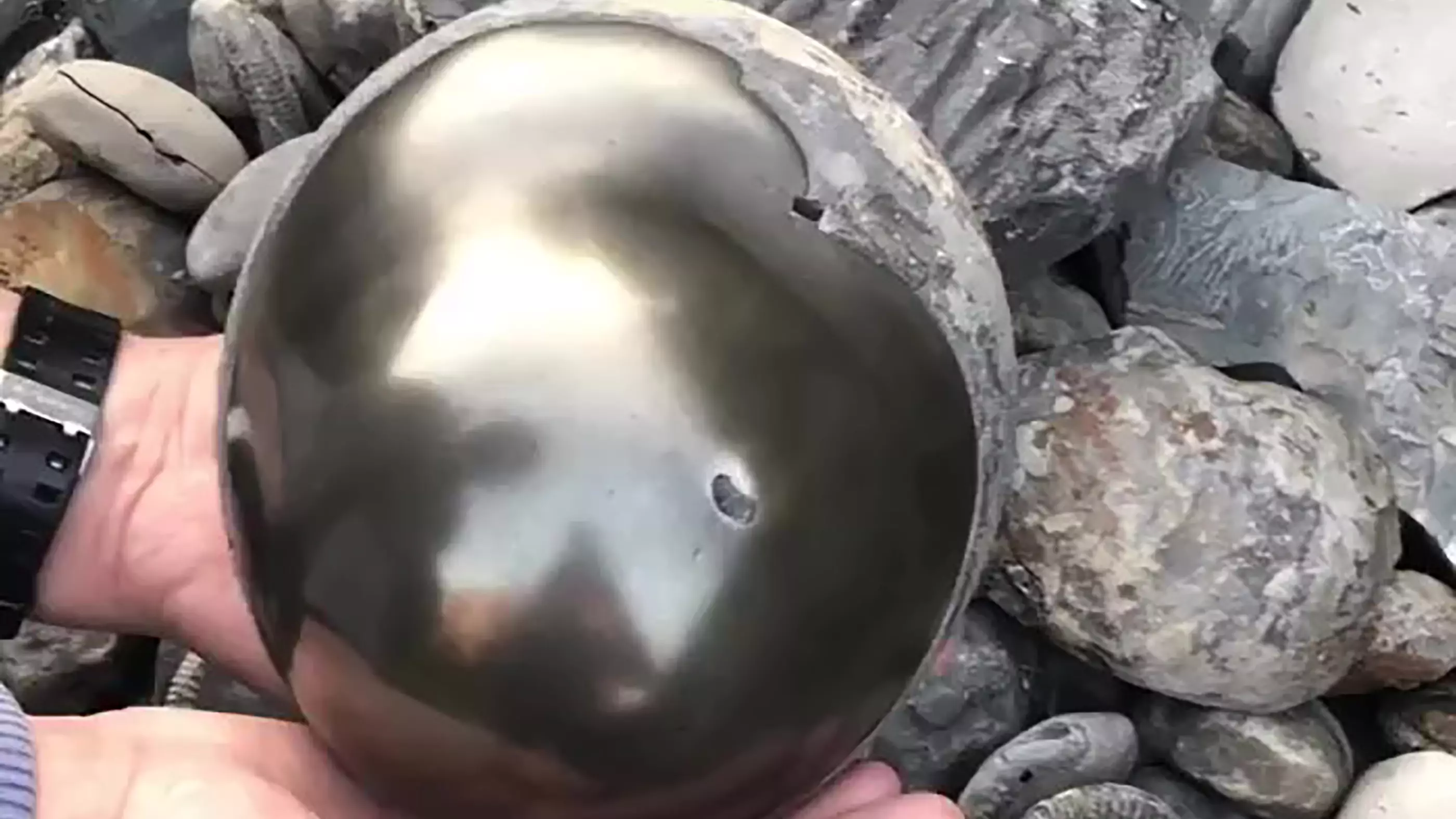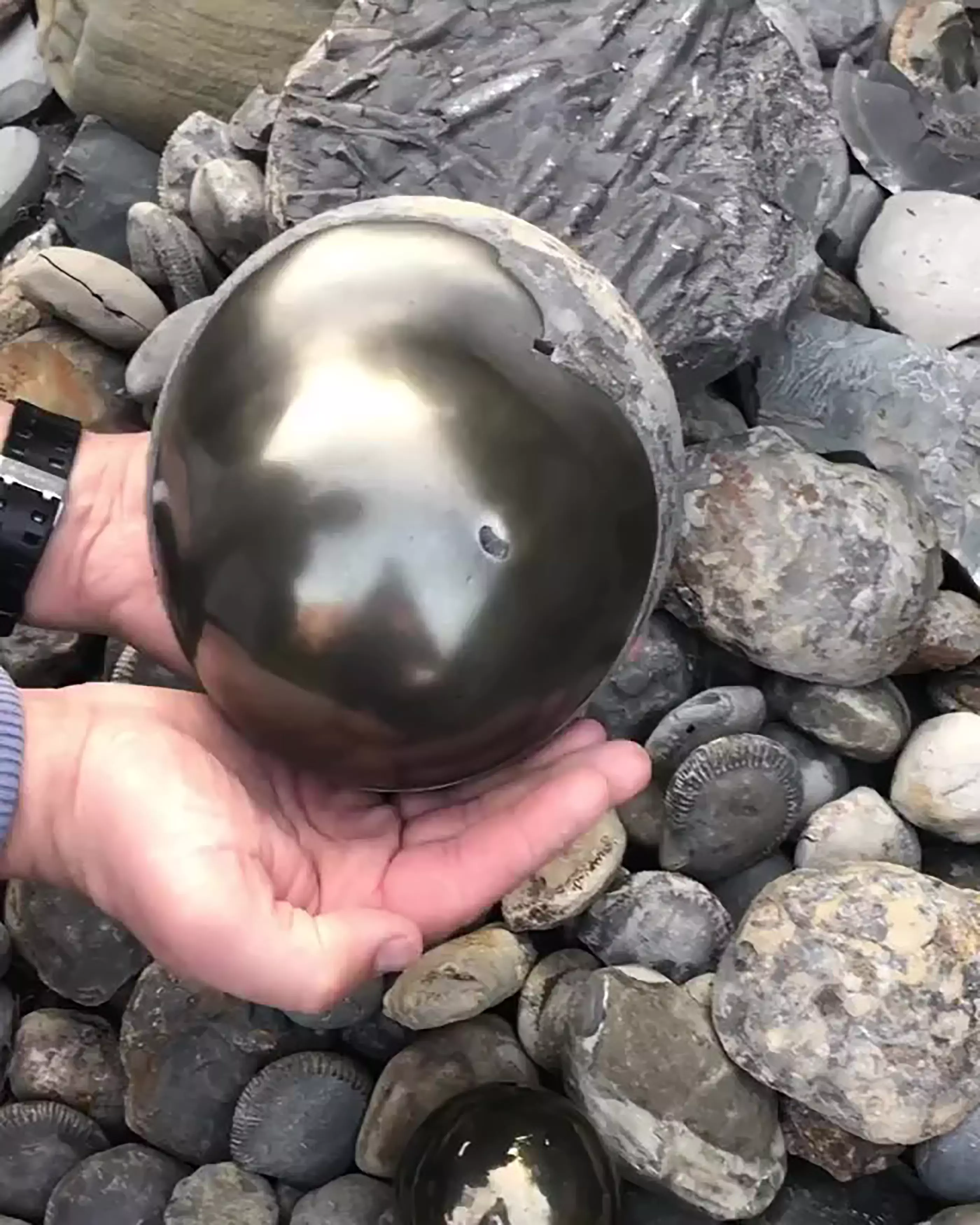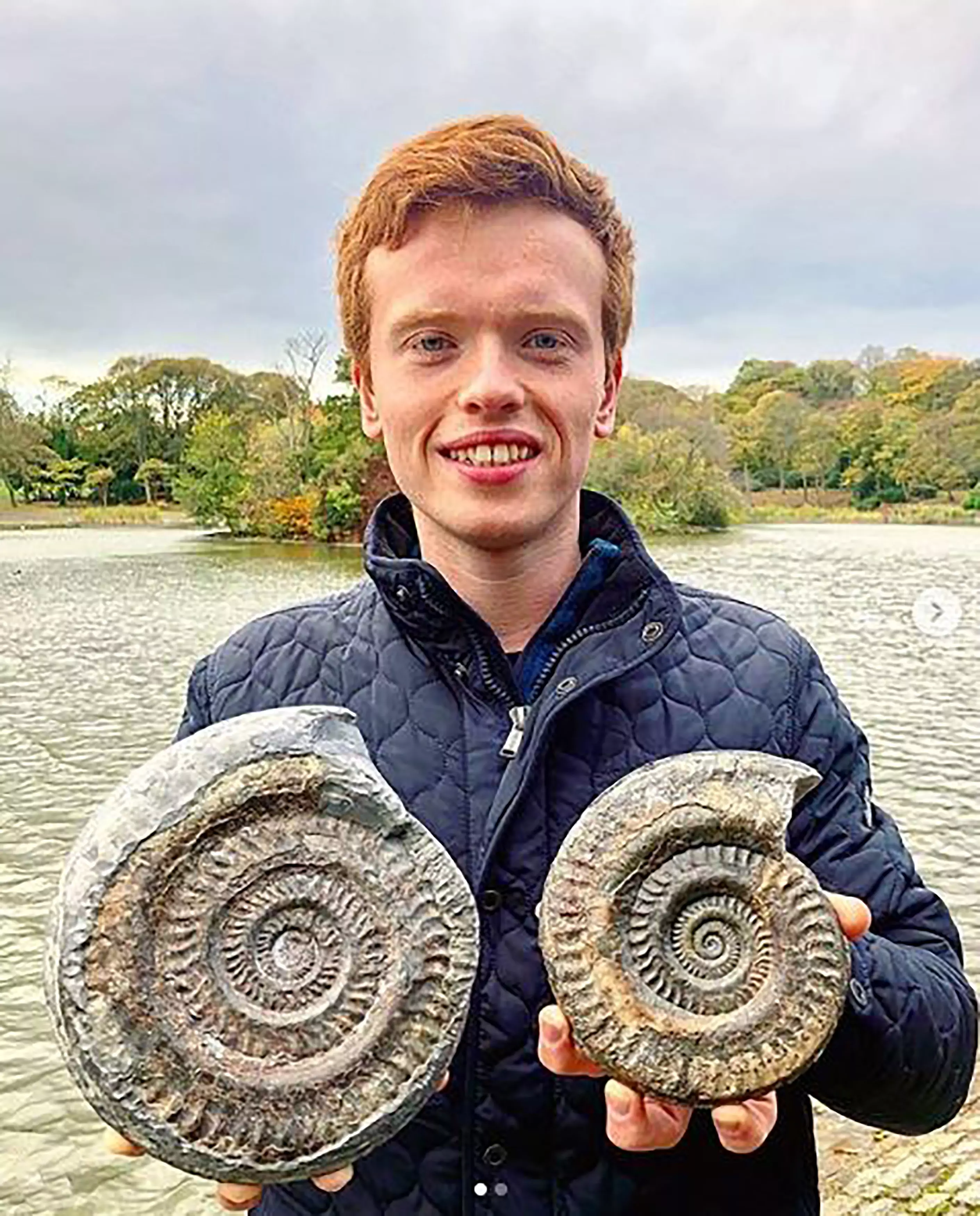
A young fossil hunter discovered a 'golden cannonball' dating back more than 180 millions years, while exploring the a Yorkshire coastline.
Student Aaron Smith goes hunting for fossils twice a week and was ecstatic when he came across the rare find during a stroll down Sandsend Beach, in Whitby.
Advert
The medical student claims the fossil is an 185 million-year-old Eleganticeras, from the Jet Rock Shales of the Upper Lias in the Lower Jurassic period.
In a video 22-year-old Aaron can be seen holding the glinting cannonball-shaped rock close up to the camera, before opening it up to show the incredible palm-sized Elegantericeras inside, before closing it again.
Aaron says the limestone of the 'golden cannonball' was naturally coated in iron pyrite - also known as fool's gold - and he has since given a good polish to make is shine.

The history buff posted the video online with the comment: "Here's a video of us opening one of our huge Cannon Ball fossils.
Advert
"The limestone nodule (rock) is coated in iron pyrite, meaning we can polish it to become golden, seen in our previous videos
"It still impresses me that these 185 million-year-old fossils are along our beautiful Yorkshire Coastline waiting to be found [sic]!
"This particular prestigious example is found only once every few years."
Aaron filmed the short video in his back garden against a huge pile of ammonite fossils that he and his dad have collected.

The fossil hunter said: "Generally when people see the video, or see these fossils in real life, they absolutely adore them.
Advert
"They love them much more than our marine reptile fossils in many cases which is quite annoying because the marine reptiles are my favourite.
"I go fossil hunting twice a week when I'm at home from university. Fossil hunting is a hobby of mine, or perhaps more like a serious passion.
"I got into it because my dad was very interested in fishing and fossil hunting too so we had lots of exposure to this amazing coast [to find fossils].
"I remember very distinctly searching for our very first ammonite, when we cracked it open we were all so excited! This lit the fire for our future passion to develop."
He added: "Often we can tell that a rock contains a fossil because you can see the edge of the fossil around the outside of the rock."
Top work, Aaron.
Featured Image Credit: Kennedy News and MediaTopics: UK News, Interesting, Animals